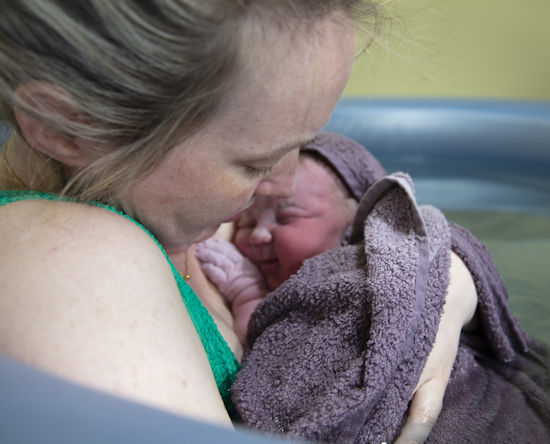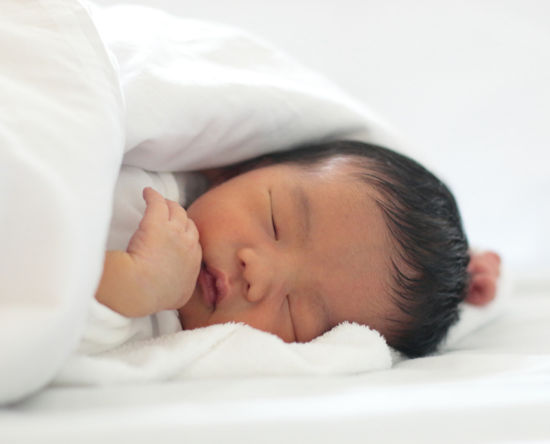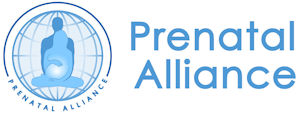
About Prenatal Parenting
Prenatal Parenting is about parenting your baby prior to conception, at conception and during pregnancy and birth.
In the last decades, many discoveries about the complexity of a baby's life still in the womb are simply amazing!
With such a short time of existence, a baby already has great awareness and sensitivity. Research in the fields of medicine, neurobiology, epigenetics, physiology and psychology confirm the influence that the physical, emotional, mental and spiritual environments have on the pregnant mother and her baby, shedding new light on prenatal life.
When a woman is pregnant, her physical, emotional and psychological experiences are information that she shares with her baby through her blood’s biochemistry, and the baby's genetic material gets organized accordingly, becoming the foundation of his/her physical and mental development. This information is recorded in each of the baby’s cells and organs and these memories or imprints become programs that have a lifelong influence on the child’s mind and character. Even the capacity for self-love, love for others as well as for the greater natural world, takes root in this initial period. This is why parenting starts even before conception, from the moment a couple starts wishing and planning for a baby, and that is the meaning of prenatal parenting.
Conscious Conception
The process of welcoming a new life begins even before conception. Indeed, a wanted pregnancy starts with a shared thought, a feeling, a mutual desire of having a child. From the moment we start envisioning this possibility, our mind, cosmic energy and nature’s life force converge towards creating this unique event in our lives.
At conception, the mother and father's genes are transmitted to their baby's first cell, which becomes the foundation of the new physical body. However, the science of epigenetics reveals that from conception onward, some of these genes may be silenced and others activated or even modified, according to the mother's inner life, how she perceives herself and how she reacts to the world.
When a child is conceived consciously, with love and harmony, an excellent fractal pattern originates, that will preside over the whole formation of the baby. From this early start, the very first cell membranes will have more growth hormone receptors that provide optimal growth in the womb!


Pregnancy from the Baby's perspective
-
We know that the way we treat our babies, infants and toddlers will have an impact later in their lives and in the way they develop physically, emotionally and intellectually. We also know that parents as well as close family members are keys to their social behavior. Nowadays scientific research shows that unborn babies are as vulnerable to their environment inside the womb as they will be outside the womb because unborn babies are conscious and sensitive beings.
Epigenetics can now confirm that we are not simply victims of our genetic background, and genes are not randomly activated, but are switched on or off by external triggers. These triggers can be nutritional, environmental (for instance toxins), emotional (a good or bad experience). Even more, this environmental impact can lead to a definitive modification of a gene!
During pregnancy, the baby senses if he/she is loved, or not. The mother’s hormones affect the biochemistry of the baby, creating in the baby the same feelings as hers. An unborn baby needs to feel connected, accepted and loved.
Pregnancy from the Mother's perspective
Pregnancy is one of the deepest and most transformative journey a woman will ever know! Women are responsible for shaping and inspiring the next generation and, in today's world, they usually found themselves between two opposite paths: being a successful working woman, putting all her efforts into her work and projects, or being a “perfect,” nurturing and caring mom. The reality of life can actually be a far cry from one in true balance and harmony.
Once a woman is informed and educated about the tremendous role she has in shaping her baby's development, she becomes able to make informed choices, feels empowered and reconnected with her creative and transformative essence, to rediscover the sleeping force of maternal love, maintaining calmness in turbulence, courage in adversity, and serenity in an unbalanced life.
We can now understand the importance of how the mother takes care of herself both physically and emotionally and how her experiences and feelings shape the physical and psychological development of her baby.


Pregnancy from the Father's perspective
Pregnancy is not only a time for the baby's development but also for the transformational journey of a mother and a father.
The father is the protector of the environment in which the mother is performing a most extraordinary, grandiose task. He will hopefully be a loving companion and an inspiration to her with his thoughts, affection and attention.
Ideally he will strive to put his anxieties aside, be supportive, present, and express delight about the wonderment of this shared journey. These moments will convey to all deep feelings of safety, which are the foundations of emotional and social intelligence of their child.
Delivery and Birthing
For many women, the fear of labor and giving birth can be overwhelming to the point that they prefer not to talk about it until the time their baby is ready to come into this world. Possibly they just want to control as much as they can at this moment of their lives.
One of the characteristics of the physiological birth is its rhythmic nature: acceleration and deceleration, the uterine contractions increase and decrease intensity, much like the rhythmic waves of an ocean. The mother's body reacts instinctively to the discomfort or pain, but can also be influenced by her will, especially when using resources such as conscious breathing and freedom of movement. This way she can give a more adequate response to her own wellbeing and her baby’s. A mother in labor should always feel safe and comfortable, uninhibited to express herself as she likes, being rude or sweet, shouting or silent, adopting unexpected positions and following her own intuition.
Birth is a powerful imprint that remains with us throughout life, influencing the way we handle choices. We should do our best to make this experience a respectful and loving one for both mother and baby.


Memories of Prenatal Life (Children and Adults)
-
Japanese Prenatal Memory researchers such as Dr. Akira Ikegawa and Dr. Masayuki Ohkado, as well as other international daring and open-minded researchers are challenging us to rediscover our sentient consciousness that originates from our prenatal life.
Infants starting from ages 3 and 4 recall memories of their time from conception to pregnancy. Children come from an original place of understanding and awareness, but sadly conventional life with all its customs and judgments often suppresses their pristine knowledge. Prenatal Memory dovetails into a more enlightened and less reductionist understanding of human physiology and psychology.
